SUCCESS STORY
Kimberly Josephine Lewis:
A Journey of Faith, Resilience, and Service
By Guillaume Jean Lefebvre
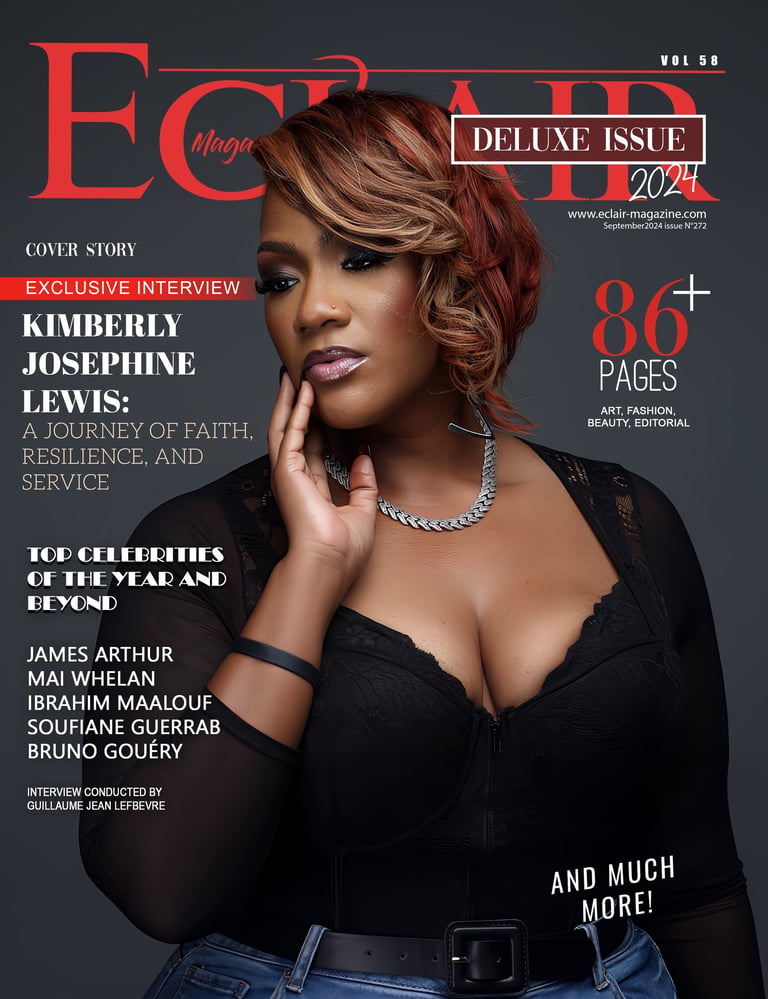

Kimberly Josephine Lewis, born in Lake Charles, Louisiana, carries a name rich in personal and familial meaning. Her father chose "Kimberly" simply because he liked it, while her middle name, "Josephine," honors her great-grandmother, embodying a strong sense of heritage.
Growing up in a God-fearing household, Kimberly’s early years were shaped by both love and challenges. After her parents' divorce when she was a baby, Kimberly briefly lived in Portland, Oregon, where her late father, Rev. Dr. Tony Lewis, pastored his first church. The family soon returned to Louisiana, where she was raised by her mother and stepfather, growing up with the influence of two devoted father figures. Despite her shy nature, which once concerned her teachers, Kimberly thrived academically, graduating as Valedictorian and earning six scholarships. However, behind her academic achievements were deeper battles—dealing with obesity, depression, self-esteem struggles, and the trauma of childhood abuse.
Through it all, Kimberly's unwavering faith was her anchor. At just 12 years old, she dedicated her life to God, deeply inspired by her father’s pastoral leadership and her mother’s devotion as an intercessor. This early spiritual commitment would become the foundation of her life’s purpose: serving others and creating safe spaces for those facing life’s most difficult challenges.
Her passion for education and helping others led her to pursue a B.S. in Chemical Engineering from Prairie View A&M University in 2005. Kimberly later earned a Life Coach certification, a Diversity, Equity, and Inclusion certification from Cornell University, and a Master of Divinity from the Samuel DeWitt Proctor School of Theology at Virginia Union University. She is currently pursuing her Doctorate in Ministry at United Theological Seminary, broadening her understanding and capacity to lead and inspire.
Professionally, Kimberly's career has been defined by her role as a Global Diversity, Equity, and Inclusion Leader, a position that empowered her to overcome self-doubt and find her voice. Her leadership not only made an impact in the corporate world but also enriched her personal life and ministry, allowing her to connect with diverse communities and uplift those who feel marginalized.
Kimberly’s approach to her work is as dynamic as her life story. As a neurodivergent Black woman, she embraces her unique perspective, managing multiple projects at once with a sense of purpose and passion. She finds joy in encouraging others, particularly those who feel life’s challenges have set them back.
Among her proudest achievements are completing her Master of Divinity with the highest honors and receiving the Samuel DeWitt Proctor Preaching and Leadership Award. These accomplishments reflect not only her intellectual rigor but also her spiritual strength and resilience.
Today, Kimberly is pouring her heart into her nonprofit organization, God’s Diamonds, which aims to support individuals who have faced trauma, adversity, or who are neurodivergent. God’s Diamonds is a 501(c)(3) organization, currently accepting donations and grants to assist in launching officially in January 2025. This organization is dedicated to providing mentorship, resources, and a safe space for those who, like her, have had to navigate life’s toughest battles. The name symbolizes the belief that diamonds are formed under pressure, and Kimberly is determined to help others see their own value, despite any setbacks they may face.
With a vision deeply rooted in faith, diversity, and inclusion, Kimberly Lewis continues to inspire those around her. Her life story is one of overcoming, of turning pain into purpose, and of a steadfast commitment to making the world a better place, one person at a time.
BIOGRAPHY
1.Your faith seems to be a central anchor in your life. Can you tell us about a moment when your faith was tested and how you found the strength to persevere?
In 2013, I lost my father to congestive heart failure and diabetes. During that season, my faith was profoundly tested. Although he was ill, his death was unexpected. About a year before he passed, I was overwhelmed with numerous responsibilities—trying to be in multiple places at once, which led to my own health issues. I was traveling about 80% of the time for my career as a consultant, and balancing that with caring for my father was overwhelming. During that time, I chose to leave my career and take an hourly job to have more flexibility to care for my mental health and tend to my father. Little did I know that he would pass away that year. It was a faith-driven decision that required great sacrifice. However, it allowed me to spend more time with him and, in a way, mentally prepare for what was to come. After his passing, I returned to my career and gradually paved my way to a role I am passionate about, helping people globally solve issues related to diversity, equity, and inclusion. Sometimes, we are called to make sacrifices and step out on faith, not realizing that these moments prepare us for something greater that we cannot yet see.
2. You’ve overcome many personal challenges, including mental health issues and self-confidence struggles. What advice would you give to someone going through similar experiences?
Your mental health is the most important thing you can have in life. I have wrestled with depression since childhood and didn't realize how important it was to say no at times. You have to say no to everyone else and take care of yourself. It may appear selfish, but it's not. Even if you call it selfish, I guess it just means self-care. I used to go out of my way to please others, which became toxic for me. I found myself in dysfunctional relationships, feeling completely drained—spiritually, mentally, physically, and financially. It left me feeling bitter, broken, unappreciated, undesired, and undervalued. However, when I began to do the self-work—therapy, meditation, self-care—I realized that I couldn't play the victim in every situation and blame others. No one knows what you're battling internally unless you open up. You have to set boundaries and parameters. It's up to you to help others understand who you are and what you need. Do not settle once you've established that.
Photographer : C.Perkins - @shotbyperks
Makeup Artist: Chinny - @makeupbychinny
Hair: Lola Griffin - @likethisorlikethathairzone
Stylist: Der’ri - @styledbyderri__
Founder of God’s Diamonds: Kimberly J. Lewis
Personal @kimberlyj4change
God’s Diamonds @godsdiamondsofficial
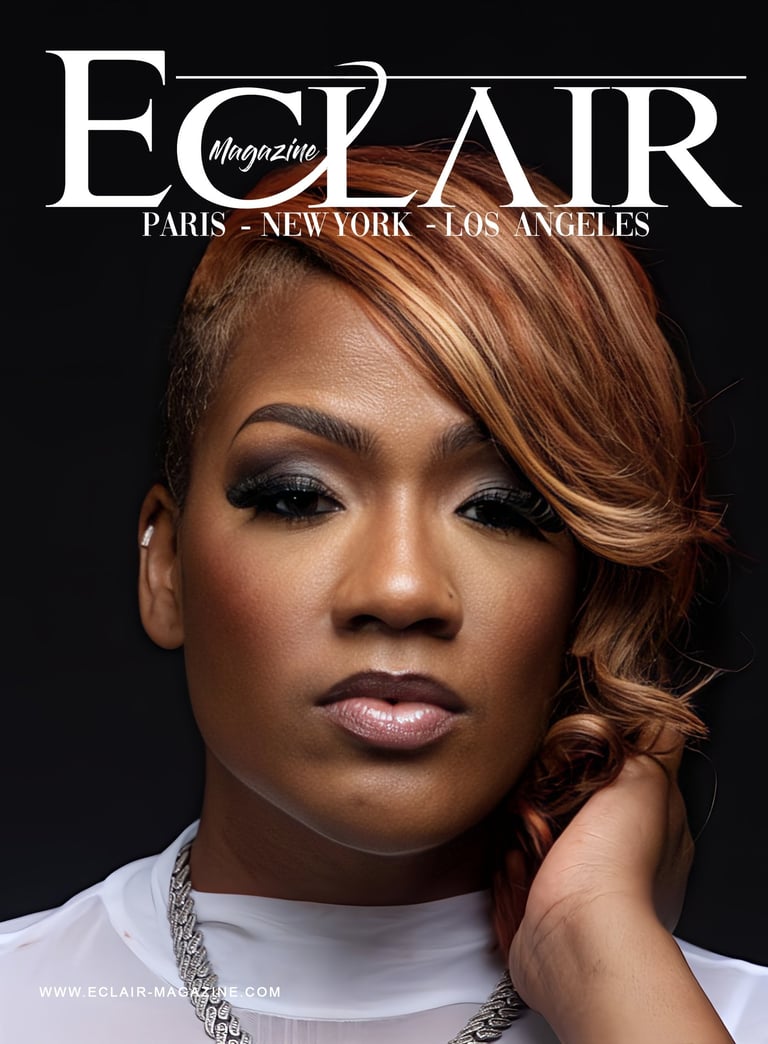

3. You mentioned growing up with two father figures. How has that shaped your view of family and interpersonal relationships?
Yes, I had my biological father and my stepfather, both of whom played crucial roles in my upbringing. Both loved me dearly as their own daughter, and I received different levels of impartation from each of them. My biological father, the late Rev. Dr. Tony L. Lewis, passed away in 2013, but I am still blessed to have my stepfather, whom I call my bonus dad, Larry Sterling, in my life. I'm so grateful for him, my mother, Linda Sterling, and my entire family unit. Along with a host of mentors, they have helped shape me. I have many different areas where I’m gifted, and I used to feel inadequate because I felt indecisive and didn’t know what to do with myself. But I realized that operating in many different areas is part of my giftedness, which requires various mentors and leaders to impart wisdom. I am blessed for that.
4. In your role as a Global Diversity, Equity, and Inclusion Leader, what obstacles have you faced, and how have you used your position to create a lasting impact?
It has been challenging to get people to see the importance of training others and raising awareness about the need to focus intentionally on diversity, equity, and inclusion. Many people assume it’s an understood thing and don't see the need to discuss it. However, we do need to be vocal about ensuring everyone is included and that marginalized groups are given fair opportunities. Sometimes, people just need someone to speak on their behalf. I’ve been blessed to serve in a global role, supporting clients as a consultant in this space for the past several years. My current role allows me to sit down with Chief Diversity and Inclusion Officers in major corporations and help strategically plan how to make their organizations more inclusive, culturally diverse, and innovative. I’ve been part of creating frameworks that support global companies and corporations in evolving and reshaping their organizations. I’m excited to be part of a consulting firm that gives me the ability to make an impact in this area.
5. Your academic journey is impressive, with degrees in Chemical Engineering, Theology, and soon a Doctorate in Ministry. How did you manage these transitions between such different fields, and what drove you to pursue higher education?
I am a church baby at heart. Not only am I the daughter of a pastor, but I grew up in a private school, Episcopalian school, that helped shape my belief and my faith. Bishop Noland Episcopal Day School instilled core values in me and a love for God and people. I love to learn, I love to read, and as a result, love education. My father told me that if God called me to preach, make sure I study to show myself approved, and that I should obtain my master of divinity degree. When he died I dropped out, but I felt as though I disappointed him. During the pandemic, I decided to go back and obtain that degree. I never promised him that I would continue on to receive my doctorate, but one of my dear mentors, Dr. James Henry Harris, pushed me and stretched me in seminary. Therefore, now I am a student in his doctoral cohort at United Theological Seminary.
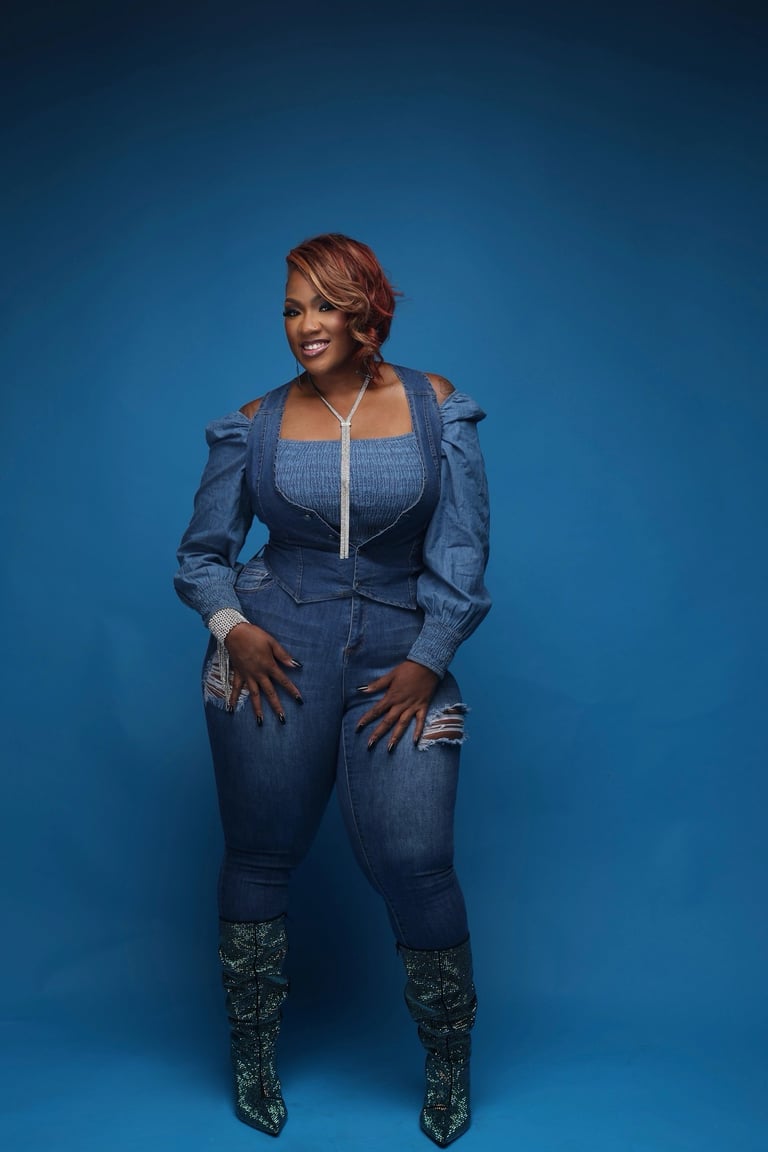

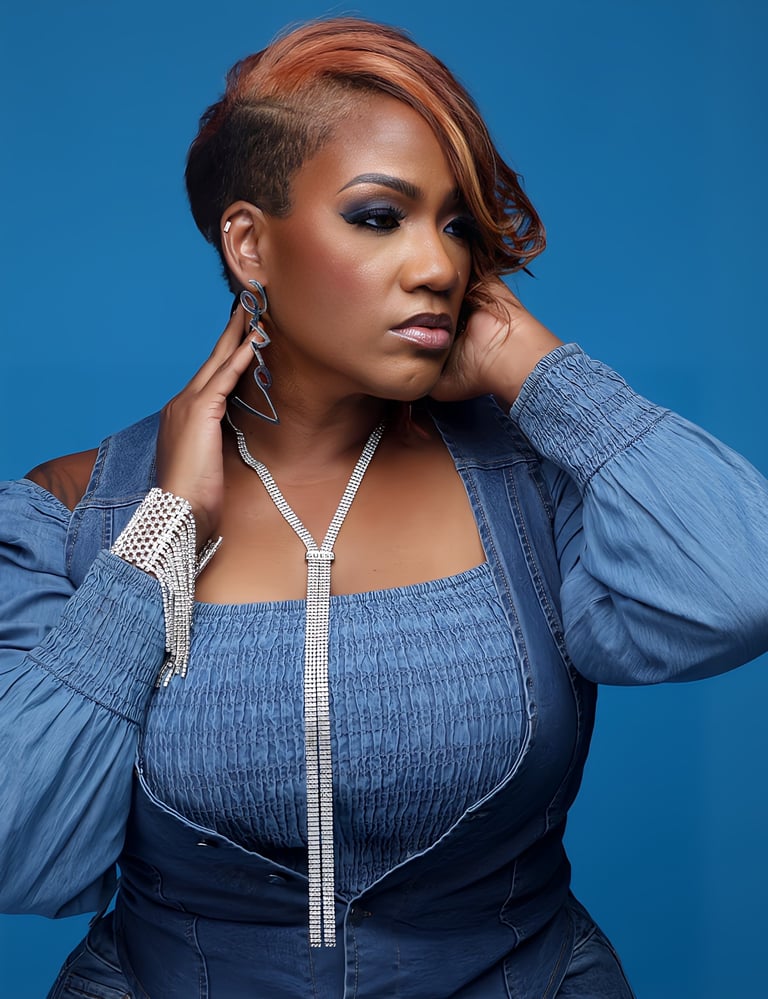

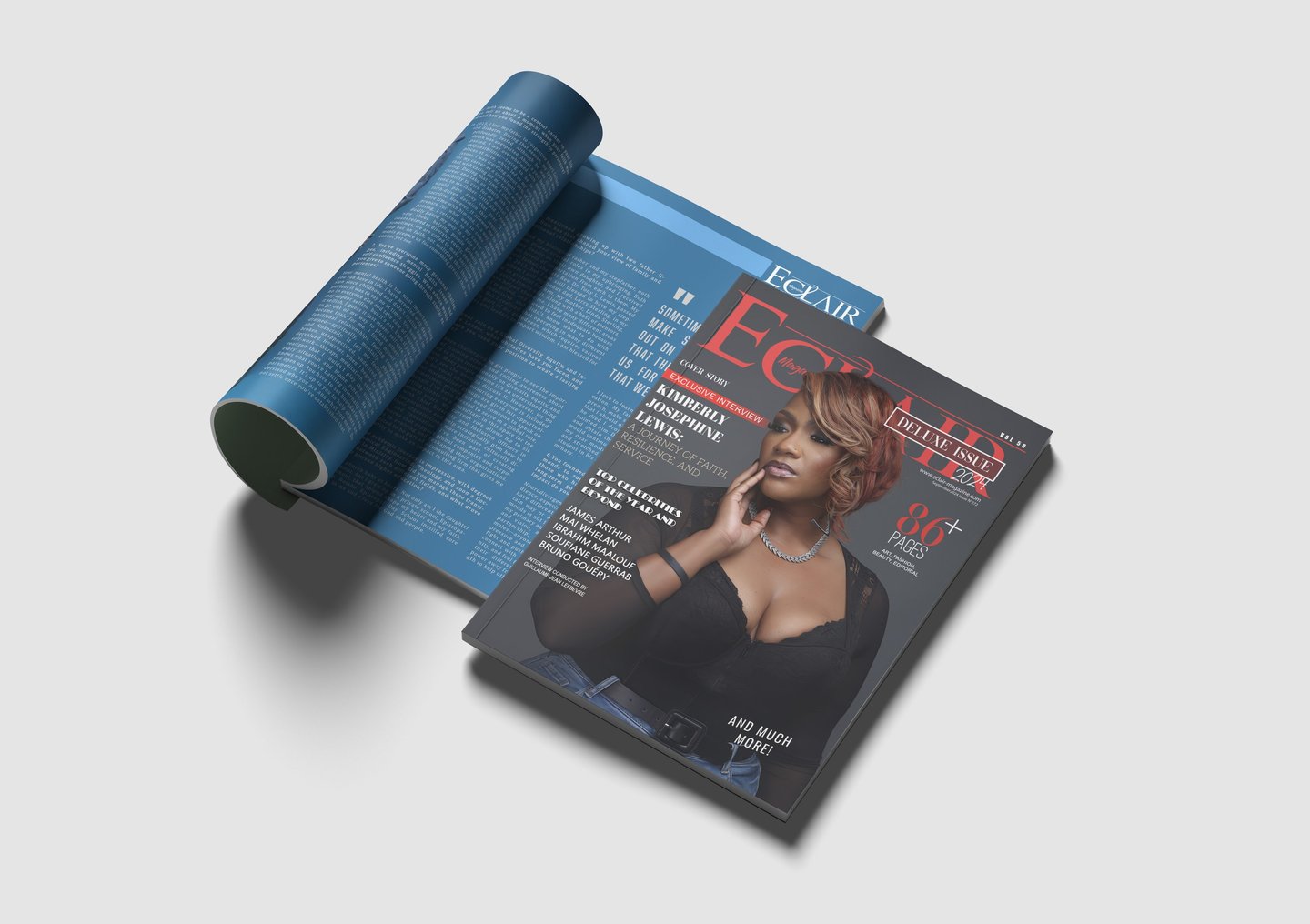

Interview
6.You founded the nonprofit organization God’s Diamonds to support neurodivergent individuals and those who have overcome trauma. What are your long-term goals for this organization, and what impact do you hope to make on the community?
Neurodivergent individuals are my primary target audience, especially those who have battled depression or have different brain patterns due to being born a certain way or having gone through trauma. God’s Diamonds is not limited to females, but initially, they were my primary audience. As I began to map out the mission and vision, and seek grants and opportunities for partnership, I realized this also includes males—anyone who has been formed under intense pressure and abnormal situations, yet has a desire to fight and push to become something greater. I want to connect with them, have them be part of this community, and feel free to share their stories. Speaking about their differences and traumatic experiences takes power away from those things and gives them the strength to help others and shape a brighter future.
7. As a neurodivergent Black woman, what are the biggest lessons you’ve learned from being in environments where you were often in the minority?
It's interesting because I have so many different layers that make me a minority. I started my career as a chemical engineer, and often, I was the youngest and the only Black female engineer in the room. It was hard because sometimes my voice wasn't heard. I would offer an opinion, and it was like I was mute. People would hear my idea but not consider it valuable until it was spoken by someone who wasn't a minority. This affected my self-esteem and made me lose my voice. My journey was slower because I wrestled with self-esteem and self-worth. After a breakdown, I took a leave from work to address my health challenges. When I returned, I came back with a different mindset. Embracing everything I once saw as failures, I began to see myself as uniquely created. I started sharing my story, trauma, and pains, which quickly made me a leader in the room. I began to embrace my calling in ministry, preaching in front of major audiences, and was seen as an expert. I encourage others dealing with inadequacies to embrace them as their giftedness. Don’t lose your voice because you bring something unique to the table.
8. Your work in diversity and inclusion is inspiring. What are some common misconceptions or resistance you’ve encountered in this field, and how have you addressed them?
A common misconception is that most companies are already diverse and inclusive based on what they say or display on their websites. However, they often don't live up to these ideals in practice. As a consultant, it can be challenging to present real data showing they aren’t practicing what they preach. Leaders often find this a hard pill to swallow. The key is to deliver the message in a way that builds trust and helps them understand the importance and value of truly living up to the culture they aspire to create.
9. You’ve mentioned struggling to find a balance between your personal and professional life. How has your approach to this balance evolved over the years, and what rituals or practices help you maintain that balance today?
For me, balance came when I accepted myself as a whole unit. I used to show up as different people in different environments—corporate America, church, home, and social networks. None of those personas were truly who I was. Growing up in the church, there were certain expectations that were hard to live up to. I felt torn and not good enough. When I decided to be authentically myself and allow God to deal with me as one whole person, whether people liked it or not, I began to find balance. Of course, there are certain things you shouldn't do in specific environments, but you can still be uniquely you. God is still working on me, and I haven't totally arrived at the best version of myself, but the key is to continue aiming for excellence.
10. With your degree in Theology and your commitment to faith, what role do you think spirituality can play in diversity and inclusion initiatives within professional organizations and communities at large?
For me, I love all people because I believe God loves all people. There are things that may be deemed wrong or sinful, but I believe that is a personal walk. I love people and present them with what my faith believes, allowing them to change at their own pace. My job is to show up and love, to give everyone a fair chance, and to be a light in a dark world. My ministry is unorthodox and focused on the marketplace rather than traditional settings. I coach artists, CEOs, and people in the entertainment industry, praying with them, providing spiritual direction, and counseling them. They may not be comfortable going into a church, and I don’t press them to do so. I walk with them, ensuring their relationship with God is where it should be. For me, that is most important and the rest will follow.
Quality, not quantity
We have made quality our habit. It’s not something that we just strive for – we live by this principle every day.
